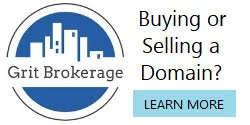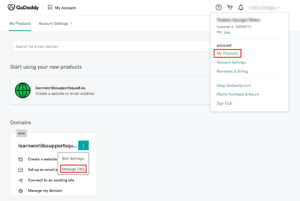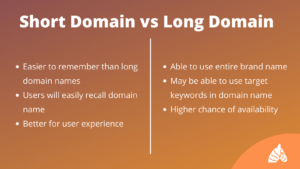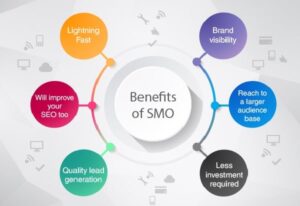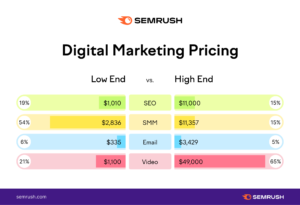A person might start a website only to grow tired of running it after a few years. They see a better opportunity on the horizon and choose to take it. When this day arrives, the website owner must know the steps to sell a website and how they can get the highest price for their venture.
How Long Does it Take to Sell a Website?
The first thing a website owner must understand is the sale won’t happen overnight. Most website brokers maintain an active listing period of 30 to 180 days. However, the owner might find they receive offers during this period but don’t get the price they are asking.
It goes without saying that it takes a long time to build a website. But regardless of this, the time it takes to sell any website can vary greatly. Some can be sold in a matter of days, while others will sit dormant for months.
An important factor is to not let a website listing become stale. People will grow tired of seeing it for sale and potential buyers will become dissuaded.
Preparing to Sell a Website
Owners should take several steps to prepare the site for sale. These steps make the venture attractive to entrepreneurs and can help draw in a larger pool of potential buyers.
Traffic Diversification
Drawing traffic from multiple sources increases the value of the business. Most websites rely on search engine optimization to generate traffic to the website. However, adding other sources fills a potential buyer with confidence. They know traffic will continue to come in even if one source dries up.
Paid traffic and ads also benefit websites, although an owner might want to drop paid campaigns to boost their bottom line. Keep these in place and carefully track results to share with potential buyers.
Other sources of traffic include email marketing campaigns and social media promotions. A company may choose to partner with another business to bring in new leads, and these methods of bringing traffic to a site serve as only a few of many available today.
This doesn’t mean SEO should be a low priority. Organic traffic sources come with higher profit margins. In addition, buyers like to see long-term stability. They appreciate seeing a significant return on a paid ad campaign but want to know if the business will have a steady source of visitors every month rather than sporadic periods of the year when a paid ad campaign is running.
Highlight the steady flow of traffic with the help of Google Analytics and Search Console reports. Buyers view these reports to see the untapped earnings potential of the company.
Minimize Owner Involvement
Business owners put in countless hours each week to run their organizations. Even when they aren’t present on-site, they often take on tasks that benefit the business. However, the time they invest doesn’t play a role in the business’s value. In fact, many buyers don’t want a business that will take up all of their time or require constant involvement on their part.
Website owners should use third-party services to reduce their workloads. When choosing which services to work with, the owner needs to ensure the services can transfer during the change of ownership. Potential buyers like knowing there will be continuity in this area, as it means less work for them as they take over the organization.
Many entrepreneurs look for a website opportunity that will allow them to have more free time while being their own boss. Have a virtual assistant in place to take care of the day-to-day tasks. Outsource order fulfillment to a third-party provider, and work with freelancers to handle content creation.
Move software to the cloud so the new owner won’t need to worry about updates or hotfixes. Automate everything possible, so the new owner can walk in and know they have these tasks handled and they can focus on other aspects of the business. However, ensure the revenue from the website will handle these expenses without cutting into profits significantly.
Maintain Financial Documentation
Potential buyers like to hear how well a website is doing, but they will also require proof of what the current owner claims is the state of the business. Be ready when they ask for this documentation. Have all financials and traffic reports ready to share with those who are interested in learning more about the business.
One month of reports won’t be enough to satisfy a savvy buyer. They will want to see months or years of documentation, as they want to understand how the business does over time. Every company experiences highs and lows, which is why they need to see the big picture.
Documents a business owner should have on hand include the company’s profit-and-loss statement and proof of sales. Potential buyers will also want to see an ad spend report, business tax returns, and a current balance sheet.
Other documents to have on hand include website traffic reports and a non-disclosure agreement. Any person reviewing these documents must sign this agreement to ensure they don’t share information about the business with other parties.
Establish a Lead Funnel
A lead or marketing funnel boosts the exposure of the company while ensuring buyers understand why they should invest in the website rather than one being offered by a competitor. First, the business owner must raise awareness about the sale of the business. To do so, they must focus on lead generation strategies.
Once a potential buyer is aware of the business, show them what makes the venture attractive and how it differentiates itself from competitors. What makes it unique? Once they have this information, help them decide if this is the right opportunity at the right time. Many potential buyers will have dropped out, as the website is not what they are looking for.
Those potential buyers that remain must now delve further into the website and what it offers. This helps narrow the buyer pool more. As an owner gets to know these individuals, they find it easier to determine what each buyer is looking for in a business. They can then take action to show the buyer why this is the opportunity for them.
Customize the Sales Page
Determine who is most likely to be interested in the business. Research sales of similar websites to see what factors appear to draw buyers. A steady flow of traffic is only one thing potential buyers might consider when determining which site to invest in.
At times, buyers want a company with a diverse product line because they feel if one category of product decreases in value, another product line will pick up the slack. It falls on the business owner to determine what potential buyers are looking for in their industry. They can then gather the information that shows how the business succeeds in that area and share it with potential buyers.
This information may also appear to a lesser extent on the sales page. A potential buyer may see just enough to have them wanting to know more. They can then reach out to the business owner to request additional information, which helps them move through the sales funnel.
Have a Professional Business Valuation
A professional business valuation allows both parties to feel comfortable with the asking price of the company. It outlines the company’s assets, including items that are not tangible. Brand recognition and patents don’t come with a set value, so the website owner needs a professional assessment to determine their worth. For example, consider getting a domain name appraisal to see if the website’s domain name is valuable on its own. The owner should have this valuation in hand before setting an asking price for the website or listing it for sale.
The above mentioned steps help to make the business more valuable. They show potential buyers the value of the business while ensuring the owner gets a fair price for their hard work. No person wants to come in and find they must start from scratch when they purchased an existing website. They want everything to be in place, so the transition is seamless.
Where to Sell a Website
Upon completion of these steps, the website owner must decide whether to conduct a private sale or work with a broker to complete this task. They need to consider the benefits and drawbacks of each option before moving forward.
Private Sale
With a private sale, the owner handles many tasks simultaneously. They must connect with potential buyers of the website, negotiate the deal, and handle the transfer of ownership. Missing one step could lead to a loss of profit or a sale not proceeding, but handling the sale without the help of a broker allows the owner to keep more of the profit from the sale.
Individuals who have an extensive list of potential buyers may choose this option. Those who don’t have this resource often turn to a marketplace that will help them connect with potential buyers.
The website owner must take care if using one of these marketplaces. They need to ensure it is reputable and offers some level of protection for the seller. Not all marketplaces do this, and the seller is sharing private information about the website. They don’t want this information to fall into the wrong hands.
If using one of these marketplaces, a seller should never share the URL of the site. This helps to reduce the risk of people contacting the seller out of boredom. They have no intention of buying the site but want to know more about its operations.
Furthermore, withholding the URL reduces the risk of scammers and copycats reaching out to the site owner under the guise of being interested in the site. Only share the URL and other sensitive information with verified buyers who have shown they are serious about purchasing the website.
Always use escrow when conducting a private sale. Doing so adds another layer of protection for both parties involved in the transaction.
The primary benefit of an owner selling their website is the lack of commission. Website brokers charge a commission, which eats into the owner’s profits. Owners who have the skill, knowledge, and time to sell their site often go this route to save on commission fees.
Website Brokers
Website owners often choose to work with a broker when they wish to sell their sites. They want to benefit from the broker’s expansive list of potential buyers. However, this is only one of several reasons working with a broker can be a wise move.
The broker takes on many tasks the owner would complete during a private sale. This allows the owner to focus on other things, such as running the business to ensure it presents the best image when it goes before potential buyers.
The broker has a team in place to connect with individuals and entities that might wish to purchase the site. They vet each potential buyer before sharing sensitive information to ensure the individual isn’t requesting this information for nefarious reasons.
When choosing this broker, look for one that requires verification of a buyer’s identity and proof of funds before they share this sensitive information. This step eliminates individuals known as tire kickers. They have no interest in buying the business and waste a seller’s time if they aren’t weeded out early.
The broker should have a team in place to handle every step of the sales process. This includes carrying out the steps mentioned above, although the owner will need to help with certain tasks, such as gathering the financial documents.
The brokerage team remains in place until the two parties complete the transaction and ownership of the website exchanges hands. They handle all inquiries from interested parties and assist with the migration of the site to the new owner. The owner rarely becomes involved, although they need to remain available if a question arises that the broker cannot answer.
Have a Website to Sell?
If you want to sell a website, then click here to get in touch with a broker today. Your website broker will prepare the site for listing, attract offers, and handle the transaction with ease.
